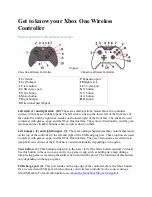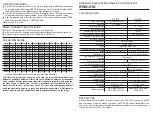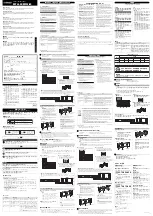
36
Commander SE Advanced User Guide
Issue Number: 4
The drive has a current controller to give current limiting in frequency control mode and a torque controller to limit torque in
torque control mode. The active current is controlled by modification of the drive output frequency. Menu 4 provides
parameters to set-up the current controller. Additional voltage based current control is provided to limit transients (peak-limit),
but there are no user parameters to control this.
Current Limits
Within the drive there are various variables used to define the ranges of the currents. These are:
Maximum drive current
- is the maximum r.m.s phase current which the drive is capable of measuring and therefore
controlling. If one of the phase currents is greater than this level then the drive will trip.
This is the drive rated current x 2.0.
Motor rated active current
- is the active current at full load which is calculated from the programmed motor rated
current and the power factor:
Motor rated active current = motor rated current x power factor
= parameter
5.07
x parameter
5.10
= parameter
21.07
x parameter
21.10
for motor map 2
Maximum current limit
- is the maximum value the current limit variable can be set to and is given by:
The maximum current the drive can deliver is 150% of the drive rating. If the motor current rating is less than the drive rating,
then the overload capability that the drive can be set to is larger than the default of 165%. If the motor current rating is set
very much smaller than the drive rating then the maximum current limit would be very high. Therefore an absolute maximum
of 1000% is applied.
This parameter is the rms current from each output phase of the drive. The phase currents consist of an active component
and a magnetising component. The three phase currents can be combined to form a resultant current vector as shown below:
This diagram assumes default parameters are set.
The magnitude given in
4.01
is proportional to the length of the resultant output current vector.
The magnetic flux in an induction motor must come from the drive and is produced by the magnetising current. This means
that the power factor (cos
φ
) will not be unity, but generally in the range from 0.6 to 0.9 for a machine operating with rated
load.
Positive load current indicates torque being applied in the forward direction, and negative load current indicates torque being
applied in the reverse direction.
The diagram above shows the magnetising and active current vectors. These are represented in x and y axis of a reference
frame.
4.02
gives the active current which is proportional to the length of the vector in the y axis and equivalent to the active
phase current value in amps.
If the drive operates with fixed boost the y axis is aligned with the output voltage. Therefore the magnetising current
represents the reactive component of current and the active current represents the real component of current. Therefore the
active current produces torque and supplies the losses in the motor.
If the drive operates in vector mode (see
5.14
) the x axis is aligned with the stator flux in the steady state, and so the active
Maximum current limit
= 100 x
Drive rated current
√
1.25 + power factor (
5.10
)
2
Motor rated current (
5.07
) x power factor (
5.10
)
4.01
Motor current magnitude
Ú
0 ~ Maximum drive current
Ö
A
RO
Uni
P
4.02
Motor active current
Ú
±
Maximum drive current
Ö
A
RO
Bi
P
165% active
current
100% active
current
cos
ϕ
y = Active current
Parameter
4.02
x = Magnetising current
Parameter
4.17
150% Motor rated current
Parameter
x 1.5
5.07
100% Motor rated current
Parameter
5.07
Resultant output current
Parameter
4.01
















































